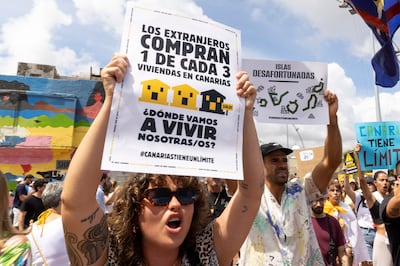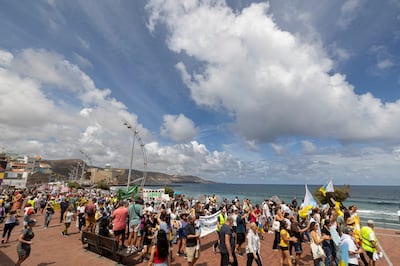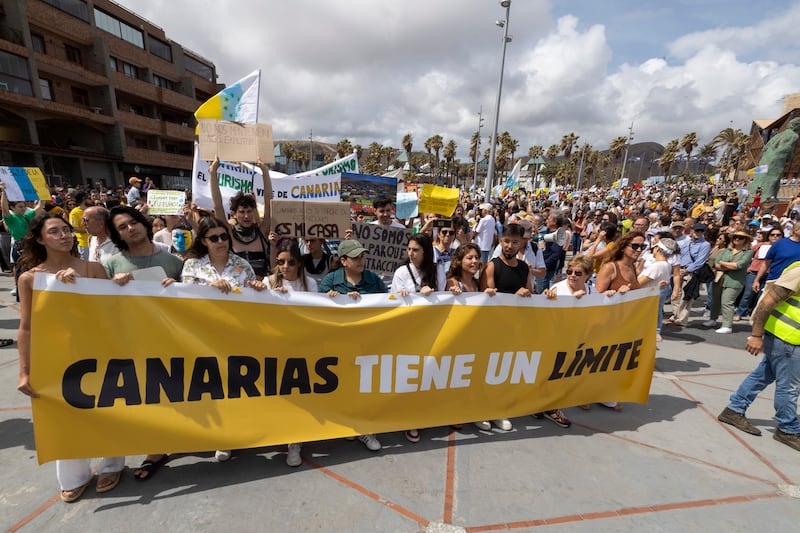Thousands of protesters took to the streets across Spain's Canary Islands on Saturday in opposition to mass tourism, which they say is overwhelming the archipelago.
Demonstrators began rallying at noon as they packed towns across the archipelago under the slogan 'The Canaries have a limit'.
Police said 20,000 residents had turned out for the demonstrations, but organisers put the figure closer to 50,000, Spain's public television said.
Protesters demanded a moratorium on unsustainable tourism, which they say is putting intolerable pressures on housing and the environment.
“We are not against tourism,” one woman demonstrator called Rosario Correo told Spain's TVE public television.
“We're asking that they change this model that allows for unlimited growth of tourism.”
Residents want authorities to halt work on two new hotels on Tenerife, the largest and most developed of the region's islands.

They are also demanding that locals be given a greater say in the face of what they consider uncontrolled development.
The islands received 16 million visitors last year, more than seven times its population of about 2.2 million people.
This is an unsustainable level given the archipelago's limited resources, Victor Martin, a spokesman for the collective told a recent press briefing, calling it a “suicidal growth model”.
“The government and the islands' regional leaders must stop this corrupt model of never-ending growth, which is based on the destruction of the environment and which only weakens the economy,” said another demonstrator, Alfonso Boullon.

Protesters also gathered in Madrid and Barcelona to show their support for the rallies in the Canary Islands, public television said.
Anti-tourism protests have multiplied in recent months across Spain, the world's second-most visited country, prompting authorities to try to reconcile the interests of locals and a lucrative sector that accounts for 12.8 per cent of Spain's economy.
The islands, which lie off the northwestern coast of Africa, are known for their volcanic landscapes and year-round sunshine.
About four in 10 residents work in tourism, which accounts for 36 per cent of the islands' GDP, official figures show.
Last week, several members of the "Canaries Sold Out" collective also began an “indefinite” hunger strike to put pressure of the authorities.
Before the pandemic brought the global travel industry to its knees in 2020, protest movements against overtourism were already active in Spain, notably in Barcelona.
After those travel restrictions were lifted, tourism surged with Spain welcoming a record 85.1 million visitors last year.






